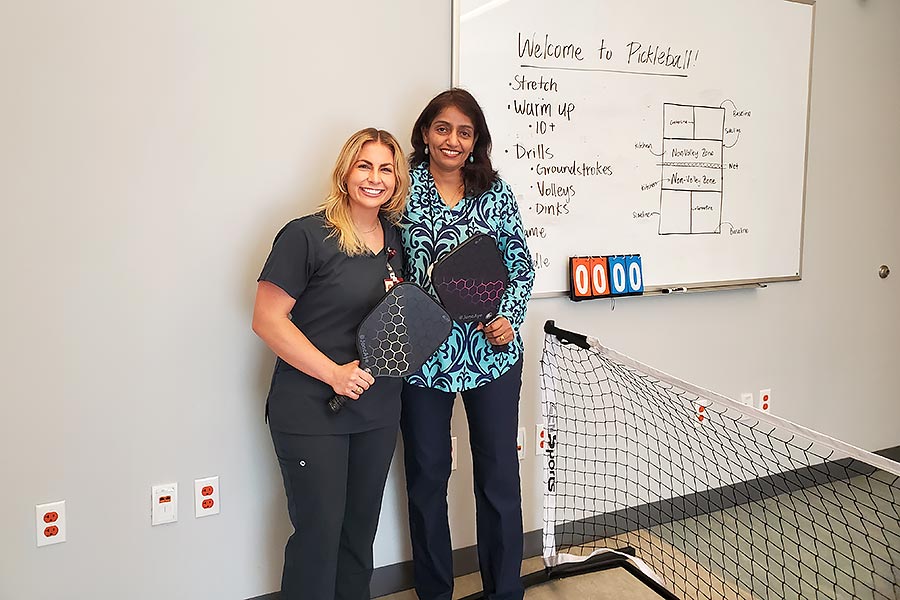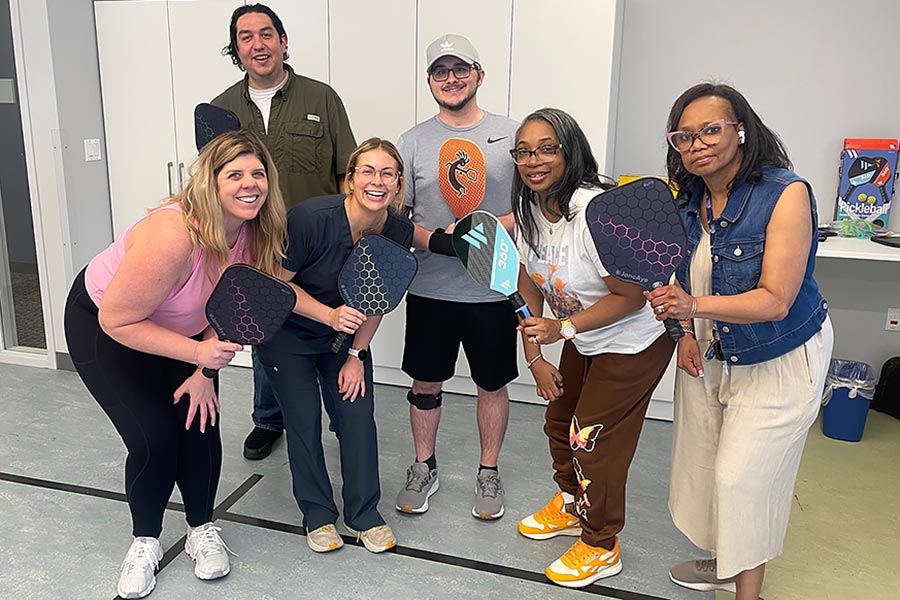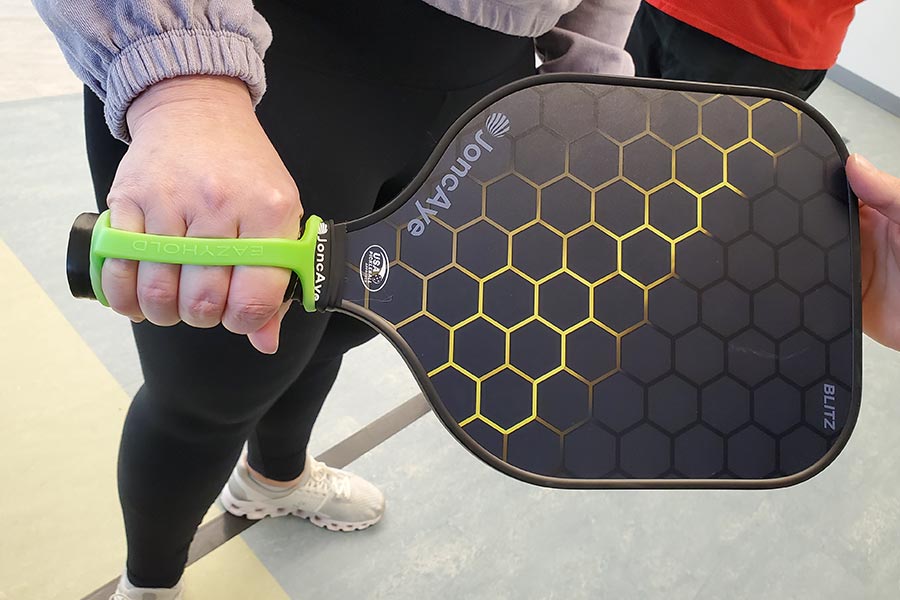Pickleball may be leisure Rx for stroke patients

April 25, 2024 – DENTON – The sport may have a funny name and an annoying sound, but pickleball – a combination of tennis, badminton and ping pong – may also play a promising role in improving the quality of life for stroke patients.
Pickleball is the focus of Texas Woman’s occupational therapy doctoral candidate Natalie Mackie, who has developed a novel approach to helping clients at the Stroke Center-Dallas lead better lives.
Mackie created an adaptive pickleball program for the Stroke Center as part of her capstone project. The Stroke Center provides outpatient treatment for people who have suffered strokes and traumatic brain injuries.
“This is OT,” Mackie said. “We are adapting people’s lifestyles and their environments around them so that they can participate in the things they want to participate in. I don’t think any of them (Stroke Center clients) had ever played pickleball before.”
Mackie, who grew up playing tennis, was introduced to the sport by family members and was a quick convert. Initially, she wasn’t sure if her idea for a capstone project held weight, but her advisor, Dallas Center OT Associate Director Asha Vas, immediately saw the potential.

“I looked beyond pickleball,” Vas said. “What does pickleball mean to someone? Pickleball means a part of their leisure activity, a part of their motor wellness, part of their social wellness. I am an occupational therapist and a cognitive neuroscientist; so I combined OT with cognitive science. The occupational therapist looks at the person holistically. Within our scope of practice, leisure is one of the important activities of daily living.”
And, one of the reasons pickleball has mass appeal is that people of all levels can play together. Mackie didn’t find much information on pickleball and adaptive sports since it is a relatively new sport, but found research that showed that racket sports were good for neuro rehab because of the repetitiveness.
“There is a higher adherence rate to adaptive sports for rehab because they love the competition of it, and the sportsmanship of it,” Mackie said.
After getting a stamp of approval from Stroke Center Director Jyutika Mehta, Mackie converted a small classroom on the 8th floor of the Dallas Center into a small pickleball court. Vas received a faculty grant that covered the cost of equipment (net, paddles, balls), Mackie printed flyers advertising the program and staff helped her spread the word about the lunchtime activity.
Mackie wasn’t sure if others would share the same excitement. But even she was amazed by the clients’ enthusiasm.

“I had no idea how incredible of an environment the Stroke Center has created,” Mackie said. “It is a big community there. They are the best advocates for the program. They brought their friends up to the program. They have so much patience for each other too. I am tailoring to people who have different levels of ability. Some need more adaptations than others. They are more than happy to help out each other and be patient.”
For three months in the spring, Mackie taught between four and eight eager participants twice a week the finer points of pickleball. She coached them on the underhand serve, the forehand, the backhand and the dink: the soft shot in pickleball that forces an opponent into an awkward return.
At the same time, she was adapting the sport so everyone could participate. Options included lowering the net, shortening the court, allowing a double bounce. A company donated adaptive grips so participants could hold a paddle more easily.
“I’m tailoring it more specifically to the individual patients,” Mackie said. “Someone may need more help cognitively with the scoring. When I’m doing drills, some of them I can feed and make them move around. Others have more difficulties with mobility so I am feeding closer to them and making it so that they can still be successful while playing.”
The group began requesting to play on a full court so Mackie found a nearby outdoor public court that they practiced on a few times.
“My whole goal for this project was to have it as a leisure activity engagement,” Mackie said. “The research shows a lot of chronic stroke patients lead sedentary lifestyles. I wanted this to be something that they could build up their confidence to then start to maybe play within their own communities.”
Vas is hopeful that the program will continue past the spring semester since Mackie graduates in May 2024.
“I think we really need to look into expansion,” Vas said. “I call it a pre-pre pilot. So, hopefully, there will be some resources, some space we can continue to do this. I think this has long mileage.”
Media Contact
Amy Ruggini
Digital Content Manager
940-898-3628
aruggini@twu.edu
Page last updated 10:09 AM, April 26, 2024